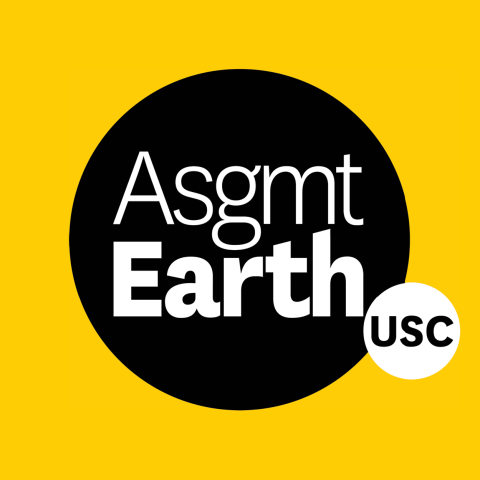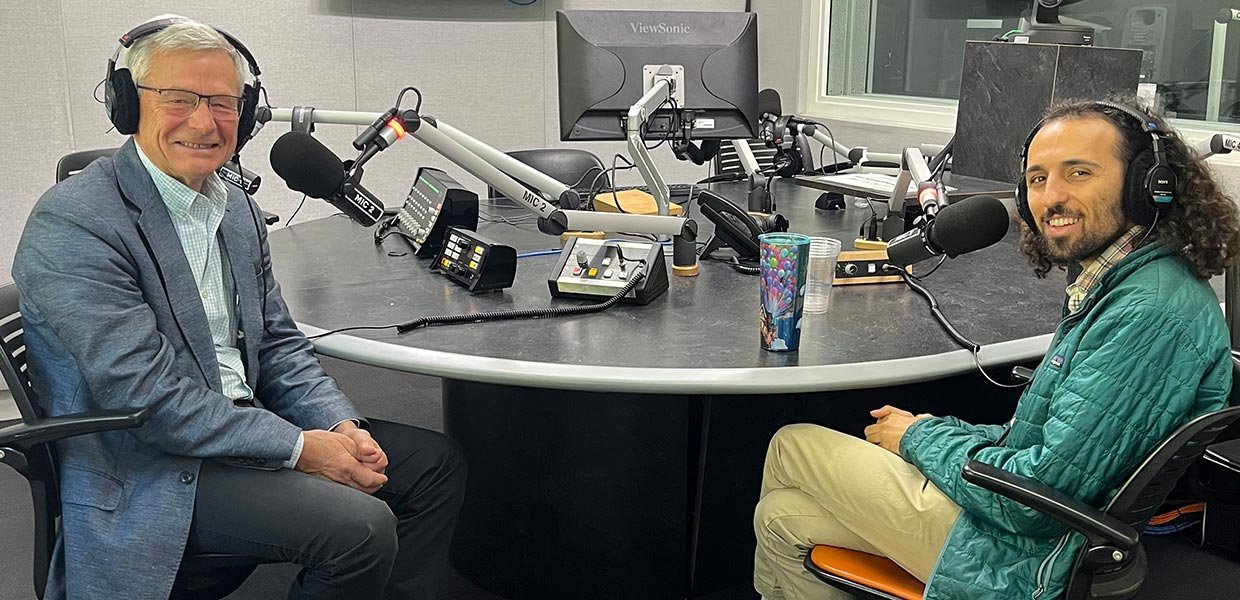The USC Annenberg Center for Climate Journalism and Communication (CCJC) announced the launch of Electric Futures, a podcast series exploring lesser-known stories about energy transition, the global energy sector's shift from fossil-based systems of energy production and consumption to renewable energy sources.
With more than six episodes in season one, the stories are told from the perspectives of the people most impacted by the changes that energy transition will bring. Charles Zukoski, former USC provost and current Viterbi professor of engineering, gets to know people living and working in a corner of Southern California rich with community – and critical minerals – on the brink of a transformation so big, it could reverberate across the globe.
Imperial Valley, an agricultural area east of San Diego and bordering Mexico, is suddenly in the spotlight thanks to its vast deposits of lithium, a chemical element necessary for the production of batteries needed for electric vehicles, grid storage, and consumer products. The extraction and processing of this “white gold” is poised to bring a massive influx of capital to the Imperial Valley, which has the highest unemployment rate in California at 21.1% and a poverty level of 17.3%. Electric Futures explores the tradeoffs the community must make as it weighs economic opportunity, environmental impact, and a worldwide hunger for lithium.
"Growing up, I always felt like my community was unknown to the world,” said Imperial Valley resident Natalie Lopez, an associate producer on the podcast and a sophomore environmental studies major at USC’s Dornsife College of Letters, Arts and Sciences. “Considering the massive amount of green energy and agricultural produce that is coming out of the Imperial Valley, it is important that people begin to understand the stakes in my hometown."
Electric Futures brings to the podcast world a commitment to using research-based climate communications best practices, including a narrative storytelling approach. Additionally, an audience research study conducted by USC Norman Lear Center will be the first to measure trends in engagement for a climate podcast. The research will be published by the Center for Climate Journalism and Communication upon completion.
“In my extensive experience in the podcasting industry, there is nothing as in-depth as this storytelling podcast and study,” said lead producer Mallory Carra, a veteran of Spotify’s top podcasting studios and a USC Annenberg adjunct professor, who teaches audio journalism. “We’re excited to take listeners on a deep journey into the heart of Imperial Valley and learn crucial details about the impact of climate storytelling that can steer the podcasting industry going forward.”
Electric Futures debuted on January 24, 2024, on Spotify, Apple Podcasts, and Amazon Music. In addition to Zukoski, Lopez, and Carra, the team includes CCJC Director Allison Agsten as executive producer, USC Annenberg public diplomacy graduate Spencer Cline as associate producer, and USC Annenberg communication undergraduate Cindy Chai as researcher with cover art by School of Cinematic Arts graduate Matthew Buxbaum.
Funding for the podcast and associated research is provided by USC’s Office of the Provost, with additional support from the USC Viterbi School of Engineering.
 The Center for Climate Journalism and Communication's mission aligns with Assignment: Earth, USC’s Sustainability Framework for a greener campus and planet. Assignment: Earth articulates the university’s commitment to addressing the impacts of climate change and creating a more just, equitable and sustainable future.
The Center for Climate Journalism and Communication's mission aligns with Assignment: Earth, USC’s Sustainability Framework for a greener campus and planet. Assignment: Earth articulates the university’s commitment to addressing the impacts of climate change and creating a more just, equitable and sustainable future.
